Related Research Articles
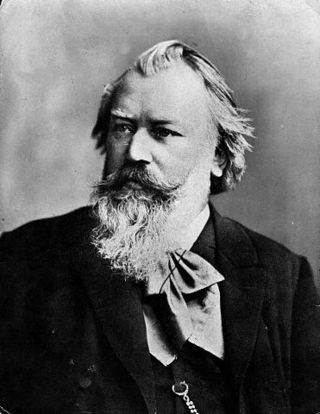
Johannes Brahms was a German composer, pianist, and conductor of the mid-Romantic period. Born in Hamburg into a Lutheran family, he spent much of his professional life in Vienna. He is sometimes grouped with Johann Sebastian Bach and Ludwig van Beethoven as one of the "Three Bs" of music, a comment originally made by the nineteenth-century conductor Hans von Bülow.
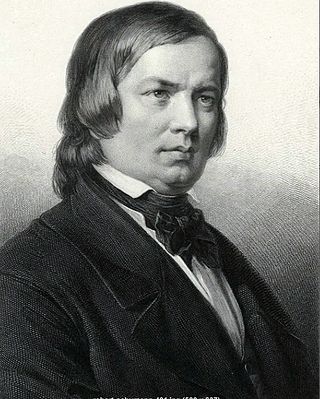
Robert Schumann was a German composer, pianist, and influential music critic. He is widely regarded as one of the greatest composers of the Romantic era. Schumann left the study of law, intending to pursue a career as a virtuoso pianist. His teacher, Friedrich Wieck, a German pianist, had assured him that he could become the finest pianist in Europe, but a hand injury ended this dream. Schumann then focused his musical energies on composing.

Clara Josephine Schumann was a German pianist, composer, and piano teacher. Regarded as one of the most distinguished pianists of the Romantic era, she exerted her influence over the course of a 61-year concert career, changing the format and repertoire of the piano recital by lessening the importance of purely virtuosic works. She also composed solo piano pieces, a piano concerto, chamber music, choral pieces, and songs.

Joseph Joachim was a Hungarian violinist, conductor, composer and teacher who made an international career, based in Hanover and Berlin. A close collaborator of Johannes Brahms, he is widely regarded as one of the most significant violinists of the 19th century.
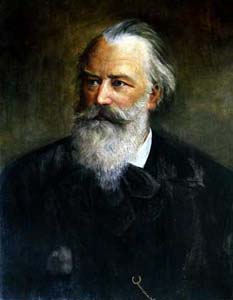
The Clarinet Sonatas, Op. 120, Nos. 1 and 2, are a pair of works written for clarinet and piano by the Romantic composer Johannes Brahms. They were written in 1894 and are dedicated to the clarinetist Richard Mühlfeld. The sonatas stem from a period late in Brahms's life where he discovered the beauty of the sound and tonal colour of the clarinet. The form of the clarinet sonata was largely undeveloped until after the completion of these sonatas, after which the combination of clarinet and piano was more readily used in composers’ new works. These were the last chamber pieces Brahms wrote before his death and are considered two of the great masterpieces in the clarinet repertoire. Brahms also produced a frequently performed transcription of these works for viola with alterations to better suit the instrument.
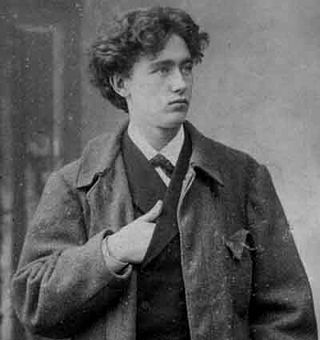
Paul Felix Weingartner, Edler von Münzberg was an Austrian conductor, composer and pianist.

Ede Reményi or Eduard Reményi was a Hungarian violinist and composer. His birth date is disputed, and variously given from 1828-1830.
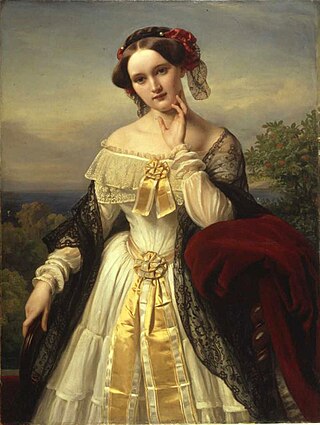
Agnes Mathilde Wesendonck was a German poet and author. The words of five of her verses were the basis of Richard Wagner's Wesendonck Lieder; the composer was infatuated with her, and his wife Minna blamed Mathilde for the break-up of their marriage.
Johannes Brahms's Clarinet Quintet in B minor, Op. 115, was written in 1891 for the clarinettist Richard Mühlfeld. It is scored for a clarinet in A with a string quartet. It has a duration of approximately thirty-five minutes.

Johannes Brahms composed his Piano Trio No. 2 in C Major, Op. 87, between 1880 and 1882. It is scored for piano, violin and cello. He wrote this piece at the age of 49.

The Piano Trio No. 3 in C minor, Op. 101, by Johannes Brahms is scored for piano, violin and cello, and was written in the summer of 1886 while Brahms was on holiday in Hofstetten, Switzerland. It was premiered on 20 December of that year by Brahms, violinist Jenő Hubay, and cellist David Popper.
Johannes Brahms' String Sextet No. 2 in G major, Opus 36 was composed during the years of 1864–1865 and published by the firm of Fritz Simrock. It was first performed in Boston, Massachusetts on October 11, 1866, with the European premiere following the next month in Zurich.

The Piano Quartet in E♭ major, Op. 47, was composed by Robert Schumann in 1842 for piano, violin, viola and cello. Written during a productive period in which he produced several large-scale chamber music works, it has been described as the "creative double" of his Piano Quintet, finished weeks earlier. Though dedicated to the Russian cellist Mathieu Wielhorsky, it was written with Schumann's wife Clara in mind, who would be the pianist at the premiere on 8 December 1844 in Leipzig.

The Clarinet Trio in A minor, Op. 114, is one of four chamber works composed by Johannes Brahms featuring the clarinet as a primary instrument. It was written in the summer of 1891 in Bad Ischl for the clarinettist Richard Mühlfeld and first performed privately on 24 November 1891 in Meiningen and publicly in Berlin on 12 December that year. It is considered by scholars as part of a rebirth for the composer who in 1890 declared his String Quintet in G major to be his final work.
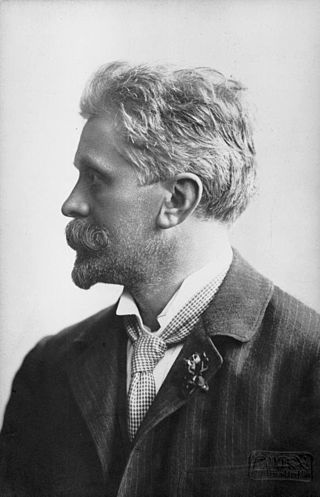
James Kwast was a Dutch-German pianist and renowned teacher of many other notable pianists. He was also a minor composer and editor.
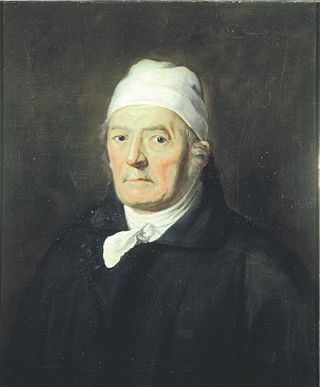
Nikolaus Simrock was a German horn player at the court of the Elector of Cologne in Bonn and a music publisher. He was a friend of Ludwig van Beethoven and founder of the N. Simrock music publishing house. "Highly esteemed as a man and a musician", he remained in contact with Beethoven throughout the 1790s and is regarded as a "reliable witness" to Beethoven's years in Bonn.

Reinhold Carl Thusmann Felderhoff was a German sculptor and medallist.

The Zigeunerlieder, Op. 103 and Op. 112 Nos. 3–6, are a song cycle for four singers and piano by Johannes Brahms. The texts are Hungarian folk songs in German adaptation by Hugo Conrat, a member of Brahms’ circle in Vienna. The first translation of the texts was by the Hungarian nurse of the Conrat family.

Ludwig Deppe was a German violinist, composer and conductor, known particularly as a piano teacher.
Robert Keller may refer to:
References
- Bozarth, G.S.; Martin, W. (1996). The Brahms-Keller Correspondence. University of Nebraska Press. ISBN 0-8032-1238-0.